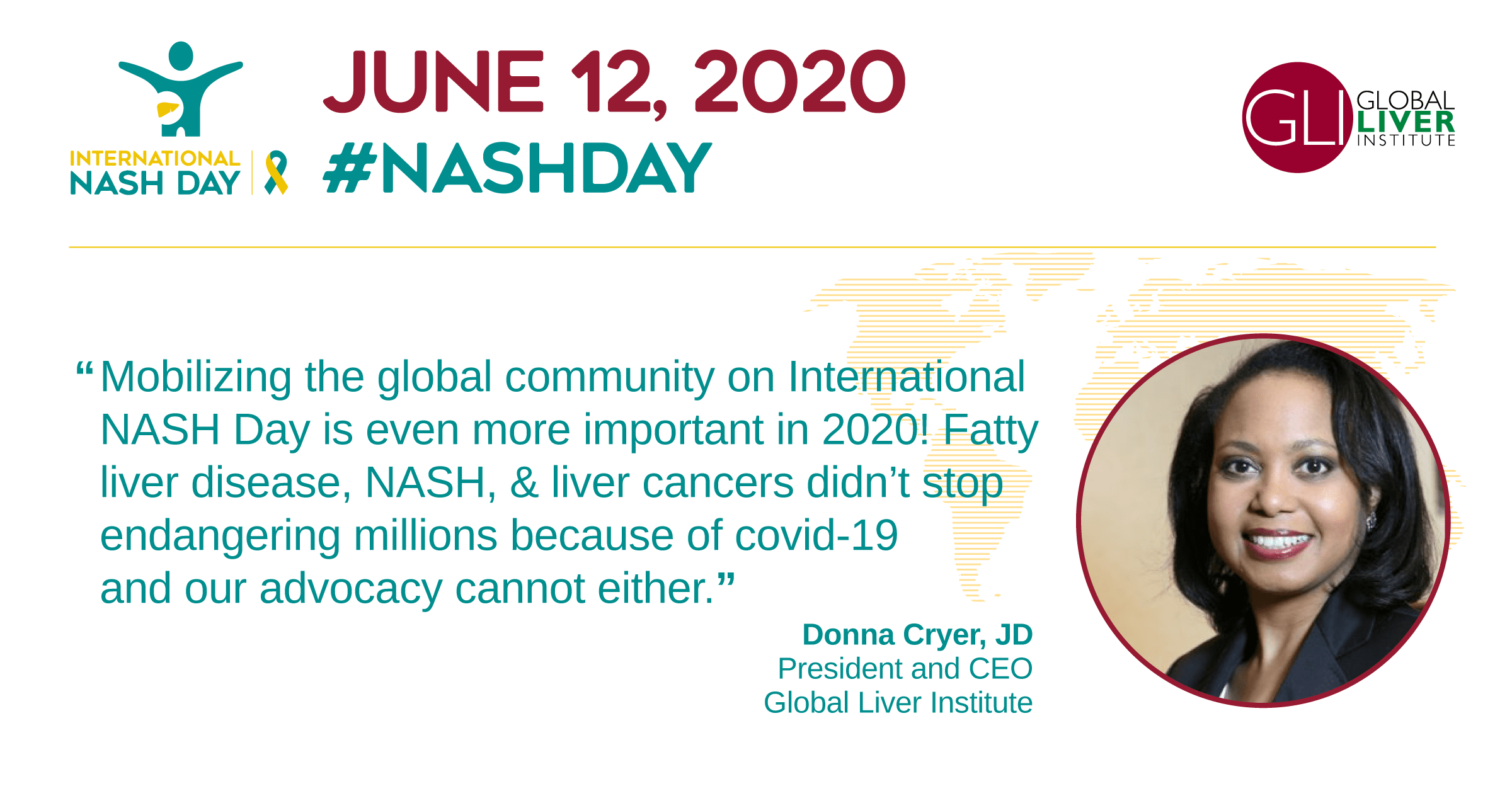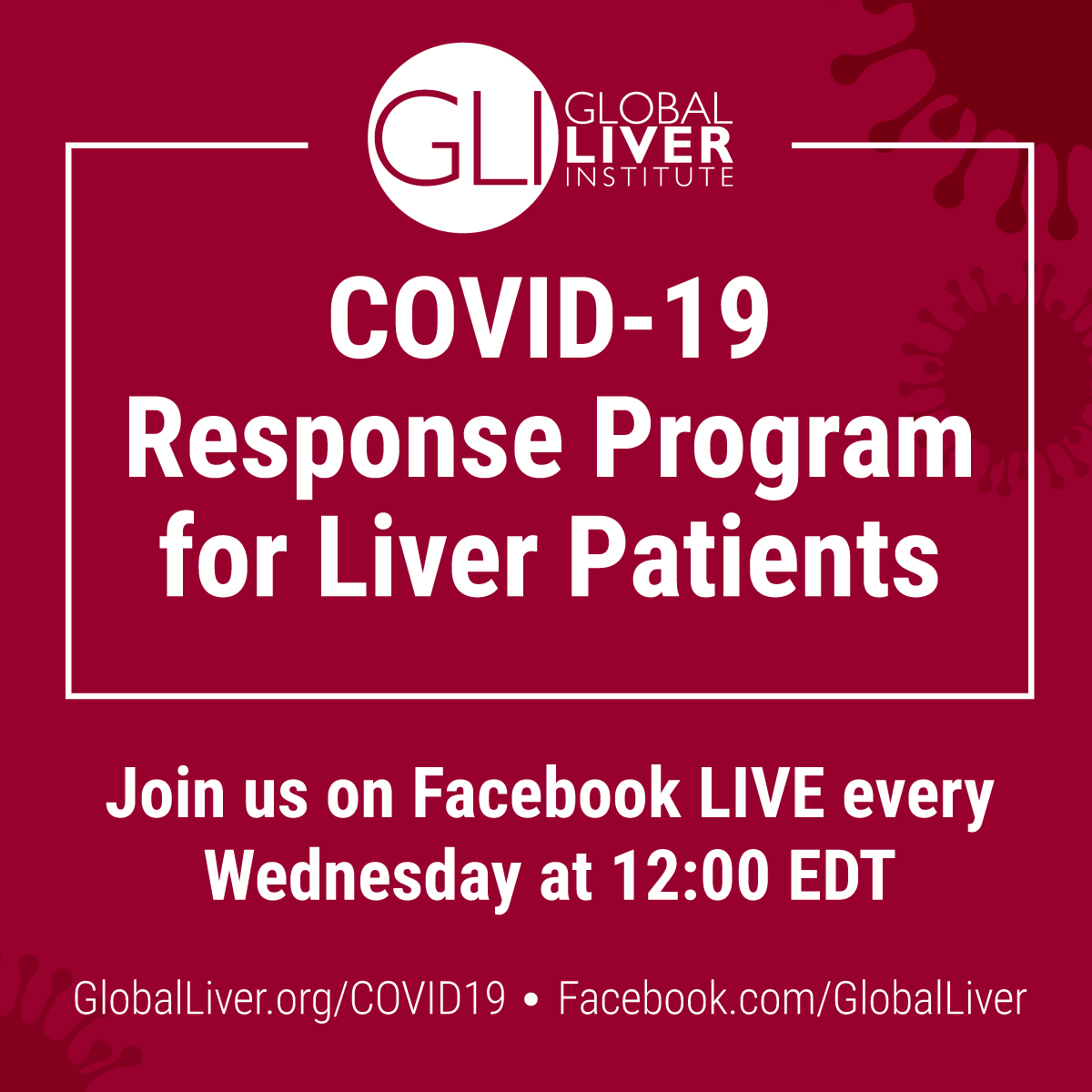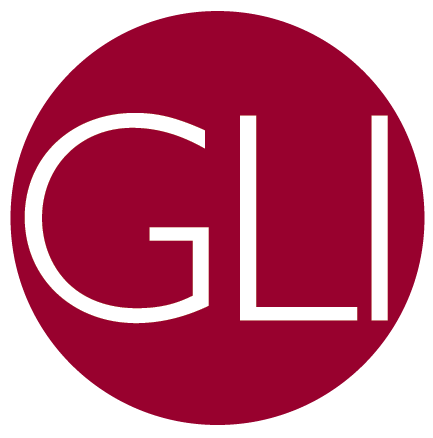

POLICY PERSPECTIVE
A global pandemic can not stop our advocacy for people impacted by liver disease. In response, this year we are excited to host the first ever International NASH Virtual Hill Day. The Virtual Hill Day will allow those who support our shared policy priorities—including elevating liver public policy to its proper place on the global public health agenda consistent with its prevalence and incidence—to educate elected officials about the importance of key initiatives and how they’re making a difference.
GLI encourages its peers to urge lawmakers on Capitol Hill to support the LIVER Act, and ask for its inclusion within the next COVID-19 response package. Your participation in International NASH Virtual Hill Day will show the groundswell of support the LIVER Act has across the country. To learn more about the International NASH Virtual Hill Day check out https://cqrcengage.com/gli/internationalnashday.
Why is it especially critical to advocate for the LIVER Act now?

- Federal appropriators are moving ahead with the annual appropriations process for fiscal year (FY) 2021 in parallel to continuing their efforts on a 5th COVID-19 emergency relief package. The combination of focus by legislators on both our FY 2021 budget, and the next response to COVID-19 presents an opportunity.
- Many liver disease and transplant patients rely on a strong safety net in the best of times and this crisis has only reinforced this point.
- By authorizing the use of more funds directed at liver disease research, prevention and awareness efforts, the LIVER Act will complement the efforts of Congress on the FY 2021 budget and be a vital part of the next COVID-19 package to ensure that patients with liver disease are not disproportionately impacted during this crisis and beyond.
How do I engage on a Virtual Hill Day?
- GLI has created several resources to help advocates engage during the Virtual Hill Day. The easiest way to engage is to communicate directly with legislators using email, Twitter or phone call — or a combination of the three. GLI has created a webpage (http://cqrcengage.com/gli/internationalnashday) with links to precreated options that also fill in contact information for Members of Congress.
- Advocates will also have an option to share their story.
- We also hope you will engage on Twitter throughout International NASH Day using the hashtag #NASHday. GLI has included several sample Tweets, but will also encourage advocates to draft your own to make the message as personal and effective as possible.

Donna R. Cryer, JD
President & CEO
Global Liver Institute
COVID-19 Response Program for Liver Patients

GLI is researching and updating information about COVID-19 specifically addressing the needs and concerns of liver patients, particularly those who are immuno-suppressed, immuno-compromised and who have chronic liver conditions. Please check here for regular updates and join GLI LIVE weekly on Wednesdays at 12:00 p.m. EDT on GLI’s Facebook page.

POLICY DEVELOPMENTS AT GLI
International NASH Day (IND™) June 12, 2020 Transformed into Virtual Multi-platform Experience

The Global Liver Institute is privileged to have the responsibility to lead the IND™ globally and is committed to its success and the safety and well being of patients and partners during this pandemic. GLI is excited to announce that International NASH Day has been transformed into a Virtual Multi-platform Experience to increase awareness about nonalcoholic fatty liver disease (NAFLD), nonalcoholic steatohepatitis (NASH) and the actions people can take to prevent these diseases globally.
For the first time, GLI will host, on June 12, six NASH live Panels with important international kols (from scientific societies, patients organizations, Universities and research centers): NASH as a Global Public Health Challenge; Pediatric NASH; NASH and Obesity; Beyond the Biopsy: the role of NITs in NASH; NASH and Metabolic Syndrome; NASH and Liver Cancer.
For partnering with us and for more information, please visit our IND™ website: https://www.international-nash-day.com/ or contact Livia Alimena at lalimena@globalliver.org
CDC Releases What to Know About Liver Disease and COVID-19
The Centers for Disease Control and Prevention (CDC) recently “What to Know About Liver Disease and COVID-19,” highlighting what people living with chronic liver disease, liver cancer, fatty liver disease and hepatitis B and/or hepatitis C infection can do to protect themselves and maintain their health. They also acknowledged a startling research finding that COVID-19 has been found to cause increased levels of liver enzymes and liver damage, which can make outcomes worse for people who already have liver fibrosis/cirrhosis.
We applaud the leadership of the primary sponsors of the LIVER Act (Representatives Velázquez, Fitzpatrick, Norton) who highlighted this real current concern for liver disease patients, and need for urgent action in a recent letter to the leaders of the House Appropriations Committee (Chairwoman DeLauro and Ranking Member Cole) on April 16th. These offices collaborated with Global Liver Institute (GLI) and other organizations in the GI community to urge their peers to include robust funding to authorize necessary resources for CDC to implement targeted prevention, and awareness grants that would positively protect patients and families impacted by liver disease.
Removing Barriers to Access during COVID-19
The COVID-19 crisis has turned an already strained prior authorization and step therapy process upside down. As doctors are not in their offices or are deployed to work in the hospital, they are not receiving the prior authorization requests to approve, and have limited ability to approve the requests if they could be received. As a result, patients are being left without timely access to the medications they need, worsening an already severe health crisis.
GLI along with other leaders in the GI Community have asked the Trump Administration and the leaders of Congress to temporarily eliminate prior authorization and step therapy requirements for GI-related treatments. This change will allow patients to receive the care they need now by allowing physicians to focus on providing critical care, as opposed to spending countless hours on the phone with insurance companies in lieu of office staff.
Advocacy Letters
GLI also collaborated with many other like-minded organizations in submitting the following letters highlighting critical policy issues for Members of Congress to keep in mind as they respond to COVID-19.
COVID-19 Letters
- ACT NOW: END AIDS Sign-On Letter to Support Continued Physical Distancing
- Letter to the Office of Civil Rights at HHS asking them to provide more guidance on state emergency triage plans
- CQC Letter on Concerns with Short Term Limited Duration Insurance (STLDI)
- Letter to support vulnerable populations gain access to treatment
- Letter from Public Health & Medical Professionals on Bail Reform, COVID-19 & Black Lives
Non-COVID-19 Letters GLI Collaborated On

OPEN ADVOCACY OPPORTUNITIES
Apply for GLI’s Advanced Advocacy Academy (A3) Class of 2020
Applications for GLI’s Advanced Advocacy Academy (A3) Class of 2020 are now open! A3 2020 will take place on September 14-15, 2020 in Washington, DC. On September 16, 2020 GLI will be hosting its second annual A3 Hill Day, open to any and all who attend A3 2020. This year’s program will offer liver patients, caregivers, and professionals the opportunity to learn from experts in the fields of drug development, clinical trials, state and federal legislation, media and communications, and liver health and disease. If you or someone you know is interested in attending, visit the A3 website to learn more and apply, or email a3@globalliver.org with any questions.
NIDDK Seeks Feedback on Strategic Plan – July 31
NIH’s National Institute of Diabetes and Digestive and Kidney Diseases (NIDDK) issued a March 16 request for information on the institute’s five-year strategic plan. According to the RFI, “The goal of the process is to develop a broad vision for accelerating research into the causes, prevention, and treatment of diseases and conditions within the Institute’s mission,” and focuses on five broad themes for community input. Comments are due by July 31.
NIH Announces New Grant Opportunity to Design Vaccines Against Hepatitis C Virus
The purpose of this grant is to support novel strategies for the rational design of vaccines against the Hepatitis C virus. The design of the study should focus on assessing the vaccine’s ability to induce protective immune response. Furthermore, the grant is looking to select candidates for preclinical development and clinical testing. The closing date to apply is June 15, 2020.

FOR YOUR CALENDAR
All in person events and meetings for the month of May have been cancelled or postponed due to the COVID-19 pandemic. Please take the proper precautions of social distancing to limit large gatherings and to remain healthy and safe!
Let us know about events we can add to our calendar. Send notices to info@globalliver.org
GLOBAL NEWS
Healthcare costs of patients with biopsy-confirmed nonalcoholic fatty liver disease are nearly twice those of matched controls
Since data are lacking in clinical practice on the use of healthcare resources and the costs associated with nonalcoholic fatty liver disease ( NAFLD), researchers compared the real-life healthcare costs of patients with NAFLD to matched controls. A retrospective study of 646 NAFLD biopsy-proven patients was conducted in Sweden from 1971 to 2009. Each patient was matched with 10 persons from the general population (controls) for age, gender, and county of residence. All healthcare contacts were retrieved from national registers until December 31, 2014. They recorded a mean of 0.27 hospitalizations per year for patients with NAFLD vs 0.16 for controls during a mean follow-up of 19.9 years. This corresponded to an incremental cost of $635 per year for NAFLD patients. Healthcare costs are almost twice as high in NAFLD patients as in matched controls. This is mainly due to higher hospitalization costs, but also to more outpatient visits. Advanced-fibrosis patients had the highest cost.
New Study finds High COVID-19 mortality rates among those with liver disease
A new international study has found increased mortality rates from COVID-19 among people with chronic liver disease and cirrhosis and has called for patients with worsening liver function to be tested for coronavirus.
The researchers set up an international registry to collect clinical details of patients with chronic liver disease and cirrhosis who develop COVID-19. Between March 25th and April 20th 2020, 152 cases were submitted to the registry, over 95% of which were hospitalised. Patients with cirrhosis had poor outcomes with an overall death rate of 40 percent. Those with advanced disease called decompensated cirrhosis had the highest rate of death (between 43 and 63 percent), compared with 12 percent for patients with liver disease but without cirrhosis.
U.S. Federal NEWS
U.S. Administration unveils national virus testing strategy
The 81-page report to Congress, delivered Sunday under the 30-day deadline set by the stimulus legislation signed in late April, H.R. 266 (116) , lays out goals in broad strokes. It recommends that states test at least 2 percent of their population in May and June and bring their test positivity rates below 10 percent.
CDC releases detailed guidelines for reopening
This past month the CDC quietly published detailed guidelines for reopening schools and businesses that have been shut down in the coronavirus pandemic. The updated document includes specific guidance for reopening child care centers, schools, businesses, restaurants and public transit. Among the additions is more detailed advice for mass transit that suggests encouraging social distancing by adding floor decals or colored tape to ensure people remain six feet apart.
NIH Releases Strategic Plan on Nutrition Research
NIH released the 2020-2030 Strategic Plan for NIH Nutrition Research, “a multidisciplinary approach through expanded collaboration across NIH Institutes and Centers to accelerate nutrition science and uncover the role of human nutrition in improving public health and reducing disease,” according to NIH’s May 27 media advisory . The strategic plan has four main goals: spur discovery and innovation through foundational research; investigate the role of dietary patterns and behaviors for optimal health; define the role of nutrition across the lifespan; and reduce the burden of disease in clinical settings. Progress towards these goals will be guided by NIH’s Nutrition Research Task Force.
U.S. House Representatives passes 4th coronavirus relief package
The House passed a $3 trillion coronavirus relief package that would deliver federal aid for state and local governments, provide rent and mortgage relief and expand unemployment and food assistance programs. The massive aid package was passed mostly along party lines.The GOP-controlled Senate is not expected to take up the measure.
FY2021 U.S. Appropriations Update
This past month, the House of Representatives passed a resolution allowing committee business to be conducted remotely. Following this action, it is expected that the House will begin marking up its Fiscal Year (FY) 2021 appropriations bills in the near future. These FY 2021 budget efforts will be conducted in parallel with the expected 5th U.S. COVID-19 response package.
New treatment approved for advanced liver cancer
On Friday, May 29 the FDA approved the use of Tecentriq (atezolizumab) in combination with Avastin (bevacizumab) for people diagnosed with unresectable or metastatic hepatocellular carcinoma who have not received prior systemic therapy.
U.S. NGO News
Survey: Cancer Patients Increasingly Face COVID-19 Health Impact
A survey from the American Cancer Society Cancer Action Network (ACSAN) details several ways in which COVID-19 has impacted care for cancer patients and survivors, according to a May 27 press release and survey memo. Specifically, the survey found that of the more than 1,200 respondents, nearly 80% face delays in their health care, 25% report difficulties contacting their providers, and approximately 50% report financial strain, among other findings.
University of Michigan Researchers Receive Grant To Study Liver Cancer Fungi
University of Michigan recently found out that they will be receiving a grant to study the fungus that causes liver cancer. David Hennesy, the Elton R Smith Chair at U Michigan’s Department of Agricultural, Food and Resource Economics, and Felicia Wu, John A. Hannah Distinguished Professor in the Department of Food Science and Human Nutrition and Department of Agricultural, Food and Resource Economics received a grant in the amount of $478,000. This USDA-National Institute of Food and Agriculture Grant has been awarded to these researchers by the USDA.

GRANT OPPORTUNITIES
Mechanisms of Disparities in Chronic Liver Diseases and Cancer. Funding available from the NIH. Application Deadlines: April 1, 2022
Notice of Intent to Publish a Funding Opportunity for Early Liver Transplantation Cohort Study. Funding available from the NIH. Application Deadlines: Future study available in summer 2020
Mechanisms of Alcohol Associated Cancers. Funding available from the NIH. Application Deadlines: September 7, 2020
